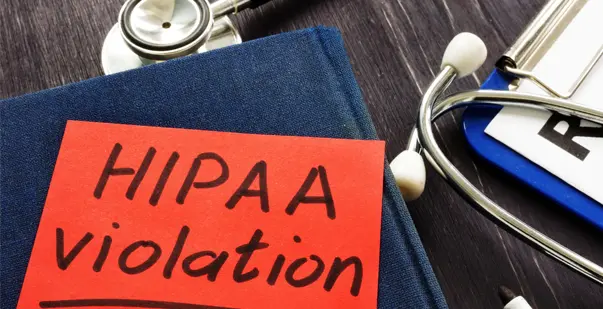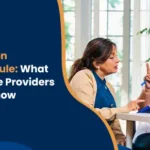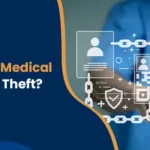Most Common HIPAA Violations You Should Avoid

July 16, 2024
When healthcare professionals or their partners fail to follow the rules set by the Health Insurance Portability and Accountability Act (HIPAA), it’s considered a violation. That includes breaking the law’s privacy, security, or breach notification rules.
Many issues come down to simple things: weak data security, missed audits, or even honest mistakes. In fact, nearly 40% of workers in medical offices admit they don’t fully understand what HIPAA requires. And in 2022, over 300,000 complaints were filed related to HIPAA violations.
The good news? Most of these issues are avoidable. With stronger security systems and better training, healthcare teams can protect patient data and avoid costly mistakes. Below, we’ll look at the most common HIPAA violations—and how they can affect your organization.
What Are the Most Common HIPAA Violations?
Not Securing Records: Healthcare is a fast-paced world. In the middle of a busy day, it’s not unusual for someone to step away from a desk and leave patient records out in the open. Whether on paper or on a screen, if those files contain Protected Health Information (PHI), and they’re left unsecured, it’s a violation.
Even digital records need to be handled with care. Password protection and staff awareness are both essential to meet HIPAA compliance standards and protect sensitive patient data.
Lack of Encrypted Data: One of the more serious HIPAA violations happens when digital files aren’t encrypted. If a hacker breaks in, or if a password gets leaked, PHI becomes vulnerable. When that data isn’t properly secured, it’s a major compliance issue.
Healthcare providers must go beyond basic passwords. Files should be encrypted when stored and while being shared—especially if a third-party service is involved.
Data Breaches: Cybercriminals are constantly looking for ways to steal patient data. Whether through weak networks, outdated software, or phishing scams, hackers can find their way in. When that happens, and they access PHI stored electronically, it’s a clear violation of HIPAA.
Breaches are one of the biggest threats in healthcare security today—and they often come down to gaps in basic protections.
Improper Disposal of Records: Throwing out patient files without properly destroying them is another common way organizations violate HIPAA. If criminals get their hands on discarded documents or devices containing PHI, that data can easily be misused.
For paper records, shredding is a must. For electronic files, simply deleting a file isn’t enough—you need to wipe the data from the device entirely.
Inadequate Employee Training: Many HIPAA violations can be traced back to one simple cause: employees not being properly trained. If a team member doesn’t understand what HIPAA covers or how to follow its rules, they could mishandle sensitive information without even realizing it.
HIPAA training isn’t optional. Every employee who works with PHI should be taught the law, the practice’s internal policies, and what’s at stake if something goes wrong.
Unintentional Disclosure of PHI: Sometimes, a staff member might open a patient’s file out of curiosity. Maybe they didn’t mean any harm—but that doesn’t matter. If someone accesses Protected Health Information they aren’t authorized to see, it’s still a HIPAA violation.
That’s why staff must be trained on who is allowed to access which files, and what happens when those boundaries are crossed.
Denying Access to Patient Records: Under the HIPAA Privacy Rule, patients have the right to view and request copies of their medical records. If access is denied—or delayed for more than 30 days—that’s a violation.
Delays can happen for a variety of reasons, but they still count as noncompliance. Healthcare providers need to be prepared to respond to requests quickly and accurately to stay within HIPAA’s guidelines.
Disclosing PHI to Unauthorized Third Parties: Protected Health Information (PHI) should only be shared with people who are directly involved in the patient’s care or billing—like their doctor, an insurance provider, or the patient themselves. Giving that information to anyone else, even accidentally, is a HIPAA violation.
This includes casual conversations, emails, or sharing details with friends or family who aren’t authorized. If someone isn’t part of the treatment or administrative team, PHI should stay off-limits.
🔗 Read More: HIPAA Compliance Checklist
How Can Employees Help Prevent HIPAA Violations?
Preventing HIPAA violations isn’t just about policies—it’s also about everyday actions. Employees can help protect patient data simply by understanding the rules and reporting anything that doesn’t seem right.
Not Sharing Passwords
Sometimes healthcare workers share their system logins out of convenience. But this is a clear violation of HIPAA. Every employee should have their own unique user ID. It’s the IT team’s responsibility to make sure those credentials are properly assigned and used.
Not Leaving Devices Unsecured
Any device that can access Protected Health Information must be secured. That means PIN locks, password protection, and encryption. If someone leaves a phone or laptop unattended and unsecured, it opens the door to a potential breach.
🔗 Read More: Who Must Comply with HIPAA Rules and Regulations?
Conclusion
Now that you know the most common HIPAA violations, you can see just how avoidable many of them really are. With a little more caution and awareness, organizations can stay compliant and protect sensitive health data.
Don’t leave patient privacy to chance. Secure your records, keep PHI out of the wrong hands, and make sure everyone on your team understands the rules. Following HIPAA compliance guidelines is key to building trust and avoiding costly mistakes.
Read More: Take a Course now to Avoid HIPAA Violation





